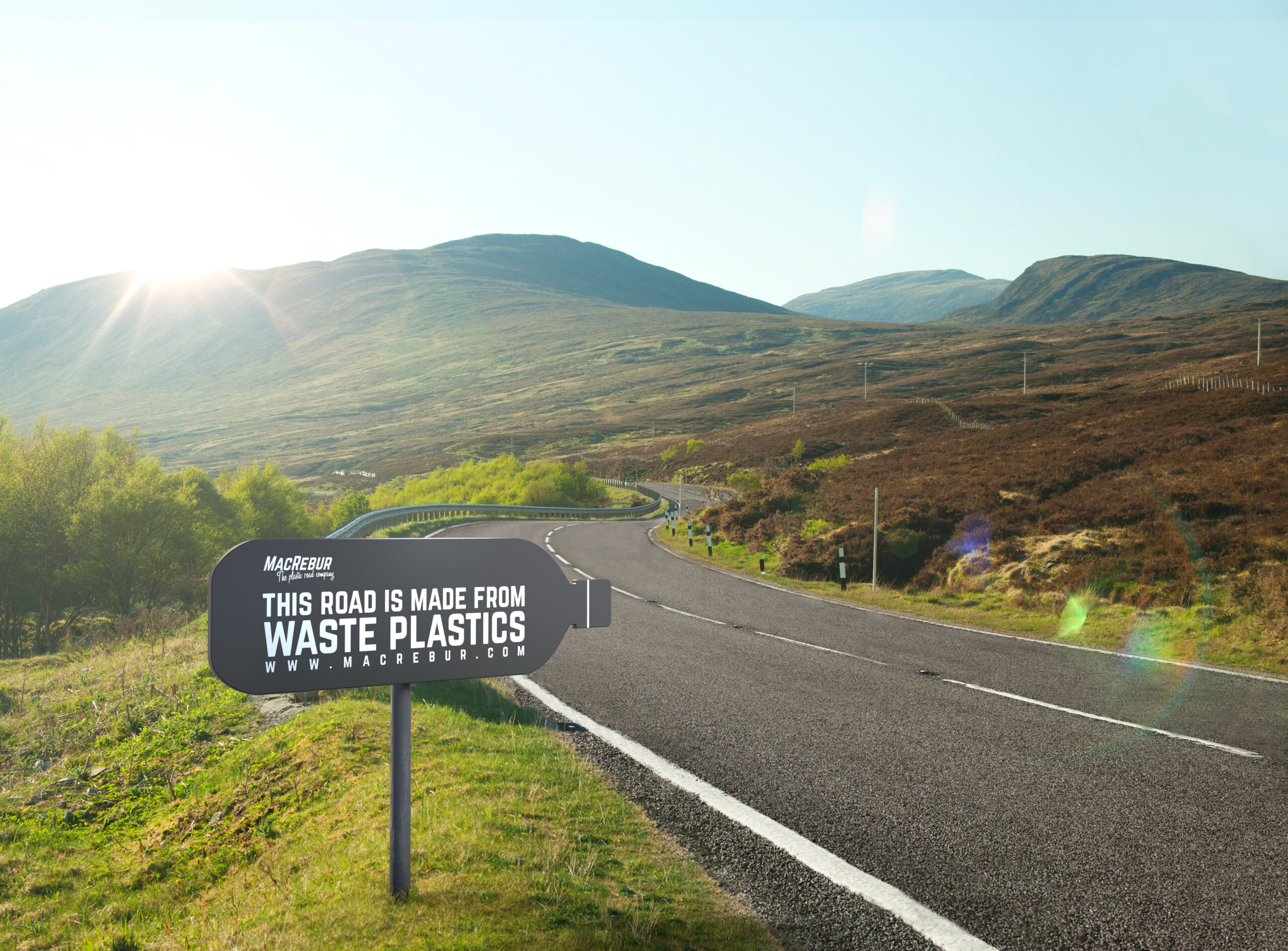
The end of the road for plastic waste
MacRebur has developed a way to use waste plastic which would otherwise be destined for landfill or incineration in roads and carparks. Their CEO, Toby McCartney, had the idea after working with a charity in Southern India, helping people who work on landfill sites to gather potentially reusable items and sell them. He noticed that some of the waste plastics retrieved by the pickers was put into potholes and set alight until it melted to form a makeshift pothole filler. Together with friends Gordon Reid and Nick Burnett, Toby launched MacRebur in 2016 after they found a safe and sustainable way to use waste plastics in asphalt. Roads using their technology have since been built in the UK, Slovakia, Switzerland, the USA, New Zealand, Australia, Bahrain, Kuwait and South Africa.
CIRCULAR RESULTS
Rethinking resources: Using what would otherwise be waste material as a valuable resource in the manufacture of road surfacing.
Design for the future: The plastic waste used in the road mixture enhances the product meaning it is designed to last longer before needing maintenance or repair.
HOW THEY DID IT
In simple terms, traditional asphalt used to make roads and carparks is made of bitumen and stone. But with MacRebur’s technology, part of the bitumen can be replaced with waste plastic, reducing the amount of fossil fuel required and cutting carbon. MacRebur roads look exactly the same as regular asphalt but because they contain plastic, they are more flexible. That means they can cope better with contraction and expansion caused by changes in the weather, reducing cracks and potholes and helping to solve the planet’s plastic problem. The Lockerbie-headquartered business opened its first factory in Scotland in March 2019. It now plans to open other factories around the world to allow local waste to be used for local roads.
LEARN MORE
Click here to learn more about MacRebur.
